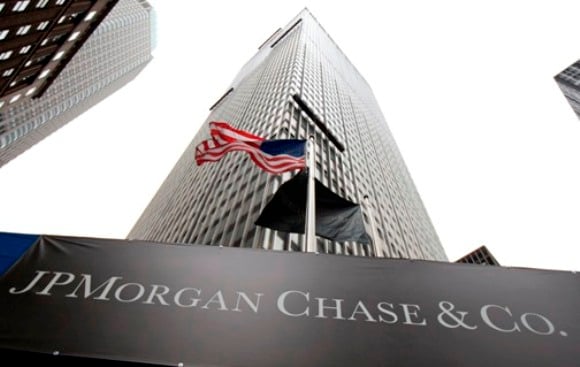While Republicans dodge the fallout of the $2 billion trading loss announced by JPMorgan Chase & Co.
last week, Democrats have been swiftly taking advantage of the opportunity to promote strong implementation of the Dodd-Frank financial reform law.
Early Tuesday evening, the Senate Banking Committee went on the offensive. Chairman Tim Johnson, D-S.D., announced that the panel would hold a hearing about derivatives on May 22 with Securities and Exchange Commission Chairman Mary Schapiro and Commodity Futures Exchange Commission Chairman Gary Gensler as the main witnesses.
Although this session isn't billed specifically as a hearing about JPMorgan, the firm's massive stumble on its derivatives transactions will surely be front and center. Last Friday, Mr. Johnson promised a JPMorgan hearing soon.
Two hours after the Senate Banking Committee sent out its release on Tuesday night, the House Financial Services Committee started playing defense on JPMorgan.
The panel announced that it would hold a hearing in coming weeks on JPMorgan. But the panel chairman, Rep. Spencer Bachus, R-Ala., couched the effort in language that was sympathetic toward the giant banker.
“The Financial Services Committee will hold a hearing on the public policy implications of this trading loss, but we will not rush into a hearing simply to chase headlines,” Mr. Bachus said in a statement. “This will give the Committee and the regulators time to gather all the facts, do our homework and then have a serious hearing on this subject.”
Mr. Bachus and most other Republicans have to approach the JPMorgan situation gingerly. The GOP has been at the forefront in trying to rein in the so-called Volcker rule that would restrict banks from placing bets on market direction with their own money and would place limits on their relationships with hedge funds and private equity funds.
Although the Center for Responsive Politics says JPMorgan evenly split its
$24.5 million in political donations since 1989 between Dems and Republicans, it's the GOP that, for the most part, is behind the eight ball on the JPMorgan fiasco.
The exception who proves the rule is Sen. Bob Corker, R-Tenn. A top-ranking Republican on the Senate Banking Committee, he
called last Friday for a hearing on JPMorgan. He wants the panel to delve into the key question surrounding the JPMorgan loss: Was the hit based on a hedging transaction or was it a proprietary trade?
What will be interesting for investment advisers to watch as the JPMorgan saga is parsed on Capitol Hill is how much it will undermine confidence in Wall Street. Will Mr. Corker and other Republicans grow increasingly bold in criticizing JPMorgan?
If they do, it might raise related questions about self-regulation. Can Wall Street monitor itself if one of the most respected banks made an “egregious error,” as JPMorgan chief executive Jamie Dimon has described it?
Those queries might then make it harder for Mr. Bachus to press forward with his
bill that would authorize one or more self-regulatory organizations for investment advisers. Of course, advisers hate the idea of an SRO. The collateral damage from JPMorgan could work to their benefit on that issue.







